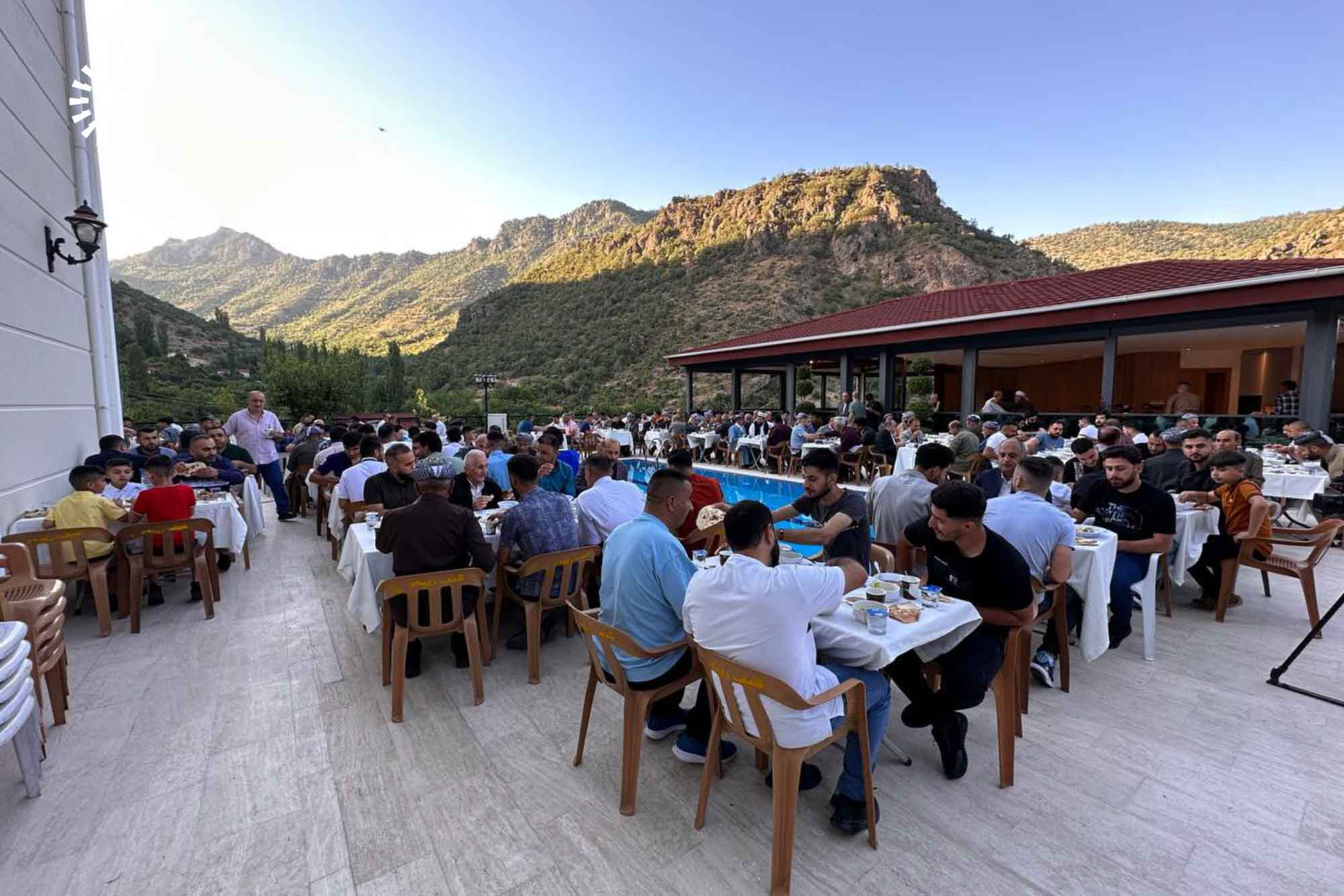
Hirore residents visit homes together to exchange Eid greetings on June 28, 2023. Photo: summitted
ERBIL, Kurdistan Region - In a village in Duhok’s mountains that for several years has been on the frontline of the war between the Turkish army and the Kurdistan Workers’ Party (PKK), residents are trying to revive normal life in defiance of the security risk.
Hirore in Kani Masi sub-district has witnessed numerous Turkey-PKK clashes since Ankara launched a series of military operations in Duhok province. Civilians are often targeted by bombardments blamed on Turkey and many villagers have been forced out of their homes.
Those still living in Hirore have now formed a committee to resume the activities that had filled their calendar before their village became a war zone. Reving Hirori, a politician and a member of the committee, told Rudaw English that they are determined to hold social events despite the risk that they could be targeted. They have put on small concerts and served big meals during Islamic holidays.
On Wednesday, dozens of villagers collectively visited homes in the village, exchanging Eid al-Adha greetings. They also had a meal together.
Hirori, who has closely monitored the security of his village as a parliamentarian, said Turkish bombardments in the vicinity of the village have declined this year.
“We inform the Turkish side before entering the village to avoid being targeted,” said Hirori. In March, Turkish forces warned them not to light fires or set off fireworks during Kurdish New Year, Newroz, celebrations, but they still did it, he said.
A suspected Turkish chemical attack in 2021 targeted the house of a family in Hirore. Jihad Abdullah, a member of the family, worked hard to prove that his family was the victim of a chemical attack, but the local authorities did not help. A health official told Rudaw English at the time that they were under pressure not to speak to the media.
Abdullah’s mother still suffers from health issues he says are related to the alleged chemical attack and his father died earlier this month from a chronic illness.
Despite the risks, Abdullah is determined to remain in the village. He told Rudaw English on Thursday that visiting the centre of the village is not enough and called on relevant authorities to allow them to access the surrounding mountains as well.
“Some people want to take their livestock to the mountains but they cannot,” he said.
According to the young villager, Turkey and the local authorities have allowed them to visit only their houses and they have been warned they could be targeted if they go beyond this limit.
Villagers had previously told Rudaw English they had not seen any PKK fighters in the village. Most of the bombardments have targeted the nearby mountains.
In May 2021, Turkish soldiers visited Hirore with a warning that they would target residents if the PKK used the village to stage attacks.









Comments
Rudaw moderates all comments submitted on our website. We welcome comments which are relevant to the article and encourage further discussion about the issues that matter to you. We also welcome constructive criticism about Rudaw.
To be approved for publication, however, your comments must meet our community guidelines.
We will not tolerate the following: profanity, threats, personal attacks, vulgarity, abuse (such as sexism, racism, homophobia or xenophobia), or commercial or personal promotion.
Comments that do not meet our guidelines will be rejected. Comments are not edited – they are either approved or rejected.
Post a comment